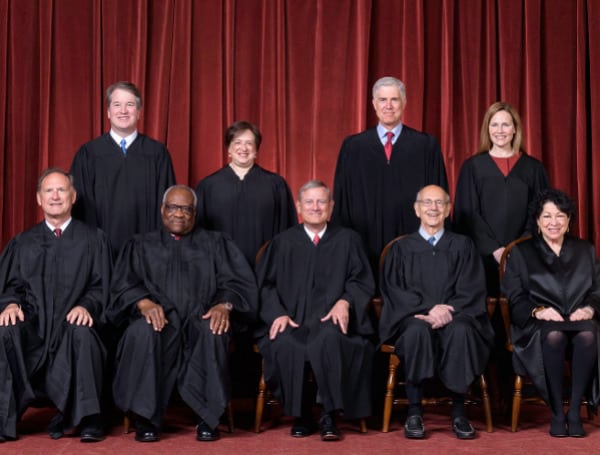After igniting a masking controversy and sowing division at the U.S. Supreme Court, NPR now surrenders.
The liberal, publicly funded media outlet acknowledged Thursday that its hit piece on conservative Justice Neil Gorsuch earlier this week was half-baked and misleading – although it didn’t fully confess in that way.
The controversy began on Tuesday, as The Free Press reported, when NPR court reporter Nina Totenberg broke the story of liberal Justice Sonia Sotomayor choosing to hear cases remotely because Gorsuch was going maskless.
Citing unnamed “court sources,” Totenberg reported, “Sotomayor did not feel safe in close proximity to people who were unmasked.”
“Chief Justice John Roberts, understanding that, in some form or other, asked the other justices to mask up,” she added.
Roberts stuck a dagger in that line by saying on Wednesday that he never asked any justice to put on a mask.
Thursday, NPR Public Editor Kelly McBride attempted to ride to Totenberg’s rescue.
The story, she wrote, “merits a clarification, but not a correction. After talking to Totenberg and reading all justices’ statements, I believe her reporting was solid, but her word choice was misleading.”
Yet her tortured effort to explain that undermines that premise.
Totenberg’s story was posted at 5 a.m. Twelve hours later, in an interview, she claimed that regarding Roberts’ supposed communication to the rest of the bench, the operative word was “suggested” not “asked.”
There was no explanation about the word shift.
Then McBride admits Totenberg didn’t know what was going on.
“Exactly how did Roberts, in some form, ask or suggest that his colleagues cover up?” McBride wrote. “Totenberg told me she hedged on this: ‘If I knew exactly how he communicated this I would say it. Instead I said ‘in some form.’”
McBride then claimed that Totenberg had “multiple, solid sources familiar with the inner workings of the court who told her that Roberts conveyed something to his fellow justices about Sotomayor’s concerns.”
McBride admits: “Totenberg and her editors should have chosen a word other than ‘asked.’ And she could have been clear about how she knew there was subtle pressure to wear masks (the nature or even exact number of her anonymous sources) and what she didn’t know (exactly how Roberts was communicating).”
McBride concluded, “The way NPR’s story was originally worded, news consumers must choose between believing the chief justice or believing Totenberg. A clarification improving on the verb choice that describes the inner workings of the court would solve that dilemma.”
Or, perhaps, that dilemma also could have been solved with better reporting, or not issuing at all a thinly veiled hit job on Gorsuch.
Visit Tampafp.com for Politics, Tampa Area Local News, Sports, and National Headlines. Support journalism by clicking here to our GoFundMe or sign up for our free newsletter by clicking here.
Android Users, Click Here To Download The Free Press App And Never Miss A Story. It’s Free And Coming To Apple Users Soon



Typical of NPR, the Not Prime Ready organization!